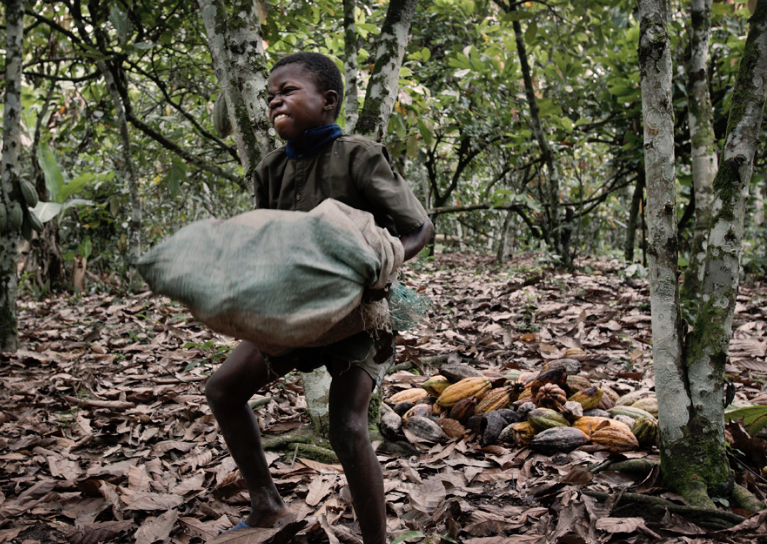This article was contributed by Ruth Dearnley and was originally published by World Vision Australia here.
As kids, my brother and I used to long for Easter Sunday, because that’s when our two cousins came round and we got to go on our annual Easter Egg hunt. It was an event that could not come soon enough, after the Christmas buzz died down.
The tradition involved being forced to stay in the living room, whilst sneaking peaks through the curtains of the grown-ups hiding mini eggs behind plant pots in the garden. The thrill was definitely in the chase as we would elbow each other out of the way to get to the most obvious ones. But inevitably once the swapping of our favourites started, we made sure everyone had roughly the same amount.
It’s a tradition that still continues today! But sadly, Easter Eggs don’t taste as sweet as they used to.
Because the ugly truth behind these treats is that the people most critical to bringing them to us – the farmers and their families that grow the cocoa – often see little joy from the fruits of their labour.
The majority of the world’s cocoa comes from rural communities in West Africa. It is hard work planting, growing and harvesting cocoa – and if farmers can’t sell it for a fair price, life can be pretty tough. They can’t eat it if they don’t sell it (cocoa needs lots of intensive processing) – and if they don’t sell it, they can’t make money to buy food.
Poverty in these areas, combined with fluctuating global prices for cocoa and little bargaining power of growers, provide little security for these communities and put them at the mercy of bigger businesses who buy the product.

Children, like the boy pictured have to work incredibly hard. This teenager from the Ivory Coast has to carry very heavy loads of the large cocoa pods on a daily basis. He uses a machete repetitively to cut them, without protective clothing. He is exposed to harmful pesticides and fertilisers when tending to the crop without a face mask.
Just think about the impact of that. Any person that isn’t fully grown repeatedly lifting heavy items is at more physical risk than an adult, because their muscular-skeletal system isn’t properly formed. Similarly, he will be more prone to respiratory and internal organ problems from breathing in the chemicals. This could lead to chronic disabilities such as curvature of the spine and liver and kidney complications that will hamper his abilities in the future. All this happens instead of being in school.
I don’t think any child should be denied the joy of an Easter Egg hunt – or any other fun form of play.
But it saddens me that so many of my childhood treats, came at the expense of other children.
As children, we could not fathom that anyone would be doing anything else but running around in the garden and eating chocolate on Easter Sunday. The reflection on this as an adult is very sobering.
Fortunately, with the growing availability of ethically-certified Easter chocolate I don’t have to put a stop to the family tradition that has continued for over 35 years! I hope that the future generations that will continue our tradition, will do so with greater awareness of the people behind the products we buy. The men, women and children that we should be so thankful to for enabling us to enjoy these products from all over the world.
And as small a gesture as it may seem, I will continue to say thank you to them, by only buying from companies that ethically-certify their chocolate. That means they will work in safe conditions, they will be paid a fair wage, so they can send their children to school and can provide the safeguards against harmful child labour.
After all, there could be no fun in an Easter Egg hunt that contributed to the exploitation of others.
The views expressed here are not necessarily those of each of the partners of Global Citizen.